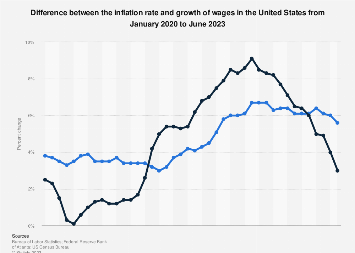regulatory policy
Environmental Rollbacks: Will the Trump Administration Overplay Its Hand?
The odds are good that Trump agencies will go too far out on a limb.
The Trump Administration’s tendency to rely on bold legal arguments rather than detailed technical ones is a disadvantage in court. Courts defer to agencies on factual matters, especially those that involve technical expertise. Now that Chevron has been overruled, however, legal arguments by agencies don’t get the same deference. Thus, the chances of a judicial reversal are higher when the agency relies on purely legal grounds.
CONTINUE READINGRightwing Authoritarianism vs the Environment
In the U.S. and elsewhere, rightwing authoritarians oppose climate action. That’s not a coincidence.
Project 2025 favors authoritarian presidential rule. It also wants to destroy environmental regulation, especially climate law. That’s not a coincidence. The combination of authoritarianism, extreme conservative ideology, and anti-environmentalism is common globally, not just in U.S. politics. There’s no logical connection between a belief in authoritarian government, upholding traditional hierarchies, and views about protecting the …
Continue reading “Rightwing Authoritarianism vs the Environment”
CONTINUE READINGThe Zombie Myth of Job-Killing Regulations
Some ideas never die, no matter how much evidence piles up against them.
With the Labor Day weekend coming up, let’s talk about jobs. Some myths are like zombies in two ways. They refuse to lie down and die, not matter what you do. And if you aren’t careful, they can eat your brain. An example is the idea that environmental regulation kills jobs. Tragically, this brain worm …
Continue reading “The Zombie Myth of Job-Killing Regulations”
CONTINUE READINGWhy a Bird in the Hand is Worth Two in the Bush — Especially When the Issue is Climate Change
Climate action is too urgent to insist on waiting for perfect solutions
It’s an ancient dispute: Should we compromise on half-measures, or hold out until we can get something a lot better? Idealists argue for holding out. Pragmatist argue that half a loaf is better than none. Rather than rehearse familiar arguments, I want to focus specifically on climate change. In my view, holding out for ideal …
CONTINUE READINGCan We Use Regulation to Reduce Inequality?
Contrary to some, I think the answer is yes. And here’s how we can do it.
Inequality is a burning issue in our society but plays only a limited role in the design of regulations. In an article that came out a week ago, I try to work through questions about how economic and racial inequality can be integrated into rule-making. In terms of economic inequality, the current system already has …
Continue reading “Can We Use Regulation to Reduce Inequality?”
CONTINUE READINGThe Contradictory Attacks on Biden’s Climate Programs
“Job Killing” or “Overheating the Economy” — Which Is It?
“Job-killing regulations” is a longtime conservative meme. That attack has now been joined by the claim that major new spending for clean energy is overheating the economy. The inflation claim is new, prompted by the passage of the 2021 Infrastructure law and the 2022 IRA. And if they were both right, the two problems would …
Continue reading ” The Contradictory Attacks on Biden’s Climate Programs”
CONTINUE READINGThe Revenge of the Lawyers
Economists ousted lawyers (and law) from their central role in the regulatory process. That’s changing.
As you’ve probably heard, the Biden Administration has proposed aggressive new targets for greenhouse gas emissions from new vehicles. That’s great news. One really important aspect of the proposal relates to the justification for the proposal rather than the proposal itself. Following a recent trend, the justification is based on the factors specified by Congress …
Continue reading “The Revenge of the Lawyers”
CONTINUE READINGA Design Flaw in the Clean Air Act
Why have technology-based standards if you have air quality standards?
The Clean Air Act has two kinds of standards. It sounds like having two kinds of standards should improve air quality more than a single standard. But in reality, one type of standard can result in canceling out the benefits of the other type. If you understand the statute, this is actually pretty obvious once …
Continue reading “A Design Flaw in the Clean Air Act”
CONTINUE READINGEmerging Answers to Major Questions
We’re beginning to get a clearer understanding of the major questions doctrine.
In November, I wrote a post posing “some major questions about the major questions doctrine.” In West Virginia v. EPA, Chief Justice Roberts starts supplying some answers to those questions. In particular, he seems to be using a narrower four-factor approach to decide what constitutes a “major question.” As we all know, the West Virginia case …
Continue reading “Emerging Answers to Major Questions”
CONTINUE READINGEquity Weighting: A Brief Introduction
An unfamiliar concept for most that just might make cost-benefit analysis more progressive.
A technique called equity weighting could make regulation more progressive. Implementing this technique may be harder than it sounds, however, for a variety of practical, legal, and political reasons. Agencies might do best to use equity weighting as a way to check their regulatory decisions rather than as their main decision tool.
CONTINUE READING












